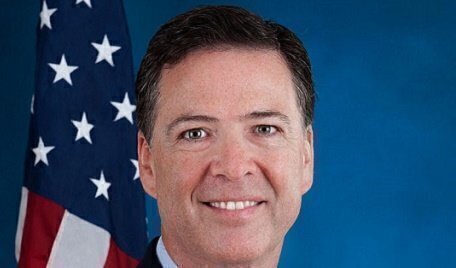In this commentary, National Constitution Center Supreme Court correspondent Lyle Denniston says the effects of the FBI director James Comey's dismissal on the constitutional order, if any, probably depend upon whether the Constitution’s system of checks and balances works as intended.
 A constitutional crisis in America happens with a deeply disturbing shift in the great tectonic plates of government, when the established order is shaken to its core. It can happen in a flash with an attack on Pearl Harbor or on the World Trade Center. Or it can come gradually, fully recognized only after it has happened, as with a profound shift in fundamental political values.
A constitutional crisis in America happens with a deeply disturbing shift in the great tectonic plates of government, when the established order is shaken to its core. It can happen in a flash with an attack on Pearl Harbor or on the World Trade Center. Or it can come gradually, fully recognized only after it has happened, as with a profound shift in fundamental political values.
Some figures in the nation’s capital, reacting on Tuesday to President Trump’s sudden firing of James Comey as FBI director, saw a constitutional crisis – occurring right now or imminently. The destabilizing of government that Donald Trump and some of his closest advisers had promised seemed to be at hand.
It was not reassuring, to those worried observers, that the Constitution clearly gave President Trump absolute authority to fire any official within the Executive Branch, for any reason or none at all. The Supreme Court has made that very clear, so in no sense was Comey’s dismissal unconstitutional.
What seemed to be most worrisome, at least for some, was that the President’s action had fit into what they saw as a pattern of authoritarian abuse of power. It was easy to recall the remark of Trump aide Stephen Miller, early in the Administration, that the President’s power “will not be questioned.” Or of Trump aide Stephen Bannon’s comment that the President’s basic goal was “to dismantle the administrative state.”
On Tuesday, many TV commentators quickly brought up the “Saturday night massacre” of October 1973, when President Richard Nixon fired a succession of leaders of the Justice Department for their refusal to shut down the “Watergate” investigation of the White House. That episode was surely a crisis, not because Nixon lacked the power to do as he did, but what his purpose was – to shield himself and his aides from accountability for wrongdoing. It ultimately led to Nixon’s resignation to avoid the near-certainty of impeachment.
Indeed, a number of members of Congress said on Tuesday night that they saw the Comey firing as “Nixonian.”
The effect of the FBI director’s dismissal on the constitutional order, if there is to be any, probably depends upon whether the Constitution’s system of checks and balances will work again to take the nation through the disturbance. It was the genius of the Founders, especially James Madison, that saw ultimate stability in the contending forces of the government’s centers of power.
Just as courts acted quickly to strike down President Trump’s initial executive order on immigration from Muslim-majority nations, forcing President Trump to try again, the Comey incident appears to have the potential to stir a correction.
Will Congress react constructively, with an outbreak of non-partisan statesmanship to calm the troubles? Or will there be the equivalent of a government shutdown or slowdown, with normal functioning upset?
Will the investigations of the Russian interference in the 2016 presidential election be able to go forward, or will they be impaired by the disturbance – momentary or continuing – within the FBI’s career ranks?
Will there be new oversight in Congress to get to the bottom of the Comey incident, or will partisanship sideline that potential?
Will the courts, reviewing the various challenges to Trumpian policy, get the sense that they, too, must help restore constitutional balance? Or will they regard this as someone else’s potential crisis?
The mechanisms of government exist to take the nation beyond the unsettling moment that burst into the American conscience on Tuesday afternoon. The Founding generation made sure of that. As Alexander Hamilton wrote in the Federalist Papers in 1787: “Why has government been instituted at all? Because the passions of men will not conform to the dictates of reason and justice, without constraint.”







